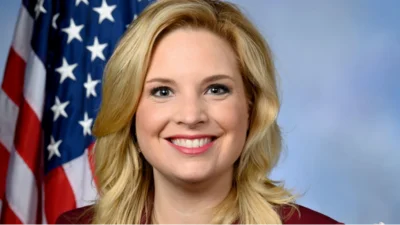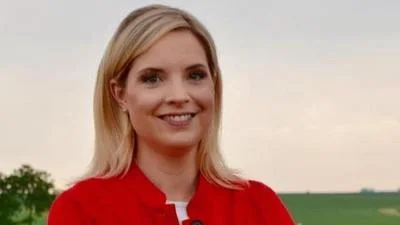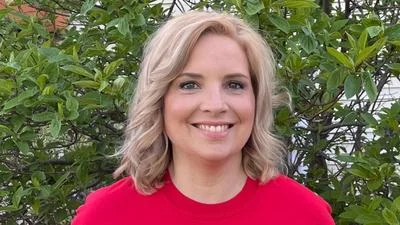Grinnell College recently issued the following announcement.
As he prepared to apply for medical schools, Paul Cover ’21 admitted some weeks he talked to Health Professions Career Community Director Mary Jane Shroyer more often than his own family.
“I went to events, planned out my path through college to meet both pre-med requirements and my own personal goals, studied for and took the MCAT, and applied to medical schools, all with the help of the health professions career community,” he says. “The fact that all of these resources are available to any Grinnellian is a huge source of comfort and strength to me.”
Stories like Paul’s – which speak to the transformative effect of the Center for Careers, Life, and Service (CLS) career communities – prompted a pair of donor couples to renew their gifts. Life Trustee Penny Bender Sebring ’64 and LL.D ’15 and Charles Ashby Lewis LL.D ’15 have made a $500,000 gift to extend their support of the education professions career community. Likewise, a $500,000 gift from Mike Powers ’67 and Linda Bird Powers ’67 will continue to provide funding for the health professions career community.
Career communities provide students with access to specialized advising, tailored programming, skill-building workshops, and pathways to connect with alumni, recruiters, and other professionals.
“The CLS has developed many innovative programs to help each student articulate, pursue, and achieve their post-college ambitions,” says Grinnell College President Anne F. Harris. “Because of donor leadership and generosity, students have a competitive edge as they explore their passions and career options through advising, employer connections, events and workshops, and experiential learning.
“We’re incredibly thankful the Sebring-Lewis and Powers families have renewed their commitments to support career communities,” Harris adds. “I’m pleased they continue to see the significant impact these programs have made on students as they establish their careers.”
Sebring and Lewis spurred the creation of Grinnell’s first career community, education professions (or EdPros for short), which began in 2013. Sebring, a senior research associate at the University of Chicago and cofounder of the University of Chicago Consortium on School Research, and Lewis, retired vice chairman of investment banking at Merrill Lynch & Co., and chairman of their family foundation, combined their expertise to become active philanthropists with a vision for professionalizing teaching among other things.
At the 2015 Commencement ceremony, Sebring and Lewis received honorary Doctor of Laws (LL.D) for their strategic and philanthropic efforts to improve education in America. The couple has helped found education professions programs at Grinnell, the University of Chicago, and Amherst College, Lewis’ alma mater.
“The largest impact of EdPros has come through strong friendships and the formal and informal mentoring relationships I was a part of,” says Elyse Salpekar ’19. “I was able to find role models to look up to as I navigated the teacher licensure program, which was incredibly helpful. As an alumna, it’s exciting to be able to provide that same sort of mentoring to younger students.”
EdPros provided a model for the creation of other CLS career communities and caught the attention of the Powers. Mike was a biology major at Grinnell while Linda was an economics major. Both would have relished career-specific programs in their student days. Active in the Arizona medical community since moving to Phoenix in 1977, the Powers originally established a fund in 2017 to support the launch of the health professions career community.
There were 126 students involved during the fall semester in the health professions career community. Shroyer says students not only gain a deeper understanding of their skills and competencies for a health care profession, but they also become more adept at articulating their interests and experiences and explaining how these will impact their future work with patients.
“Sometimes during these advising conversations, students realize medicine or health care is not the right fit and discover interests in fields like public health, social services, or biomedical research,” Shroyer says. “This outcome is still very satisfying because, ultimately, the goal is for students to gain the self-awareness and confidence to pursue their true passions and make a positive impact on their community.”
EdPros has had a similar impact; 67 current students are involved as of fall 2021. EdPros graduates have gone on to teaching; administrative, educational research, or policy roles; and nonprofit or youth outreach positions. Of the 101 Ed Pros alums from 2018-2020 who took part in a first destination survey, 49 were employed, 23 were in graduate school, 17 were doing post-graduate service, seven were in the licensure program, four were doing something else or seeking employment, and one had a fellowship.
“I love working with students and seeing their growth over time, especially as they become clearer about their goals and who they want to be as educators,” says Leslie Turner Bleichner ’07, Lawrence S. Pidgeon Director of the Education Professions Career Community. “It’s not just about the nuts and bolts – it’s about our students making meaningful connections and asking large questions about their immediate and future impact on the field. The icing on the cake is when they find their fit and land a position of their choosing.”
The specialized advising and programming that career communities provide have become an instrumental part of students’ postgraduate roadmap, says Mark Peltz, Daniel ’77 and Patricia Jipp ’80 Finkelman Dean of Careers, Life, and Service. This academic year, just over 60 percent of third-year and fourth-year students have joined at least one career community. (The other five communities are Arts, Media, & Communications; Business & Finance; Government & Social Service; Law; and STEM.)
“Today’s students have a markedly different experience as it pertains to their career development,” Peltz says. “Integrating students’ interests and studies through real-world, hands-on experiences, has produced inspiring results. I’d like to thank the Powers and Sebring-Lewis families for their initial and latest investments. Without their philanthropic support, hundreds of students would not have had the opportunity to develop personal insights and acquire the knowledge, experiences, and connections to achieve their post-college goals.”
Original source can be found here.




 Alerts Sign-up
Alerts Sign-up